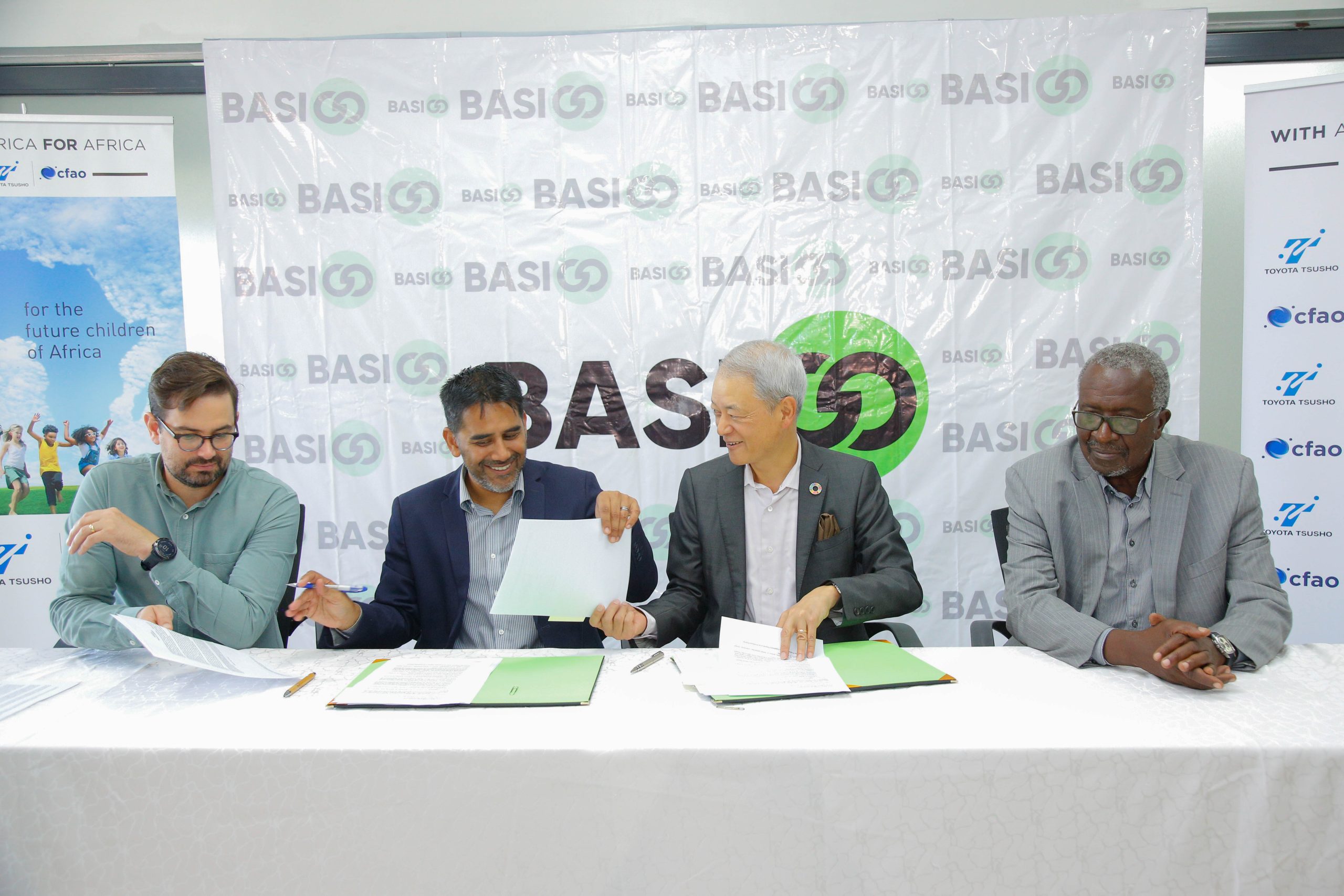In a significant stride towards sustainable transportation, BasiGo, a Kenyan e-mobility startup, has garnered a substantial USD 3 million equity investment.
This financial backing comes from the CFAO Group, a prominent entity in the African mobility and infrastructure sector, and is fully supported by Toyota Tsusho Corporation of Japan.
The investment is a collaborative effort between CFAO Kenya and Mobility54, CFAO’s corporate venture capital wing. This infusion of funds is earmarked for the expansion of BasiGo’s operations, specifically the manufacturing and distribution of electric buses within Kenya and Rwanda.
Read also: Kenyan electric bus manufacturer BasiGo expands to Rwanda
BasiGo’s Innovative Approach
BasiGo is not just another electric vehicle manufacturer; it stands out with its unique business model. The company offers a comprehensive package that includes state-of-the-art electric buses, along with essential charging and maintenance services. This is made financially accessible through an innovative pay-as-you-go financing model, which allows bus operators to pay for the battery and charging services separately from the bus purchase, easing the financial burden and fostering adoption.
At the core of BasiGo’s strategy is the pay-as-you-drive financing model. This approach is revolutionary in enabling bus operators to acquire electric buses without the deterrent of high initial costs. It’s a game-changer for the public transport sector, making the switch to electric vehicles a viable and attractive option.
Impact on Local and Regional Transport
The implications of this investment and BasiGo’s business model are far-reaching. By facilitating the transition to electric buses, BasiGo is setting the stage for a cleaner, more sustainable future in public transportation. The environmental benefits are clear, with a significant reduction in carbon emissions and a move from reliance on fossil fuels.
With this new round of funding, BasiGo is poised to accelerate its mission of electrifying public transport in Africa. The company’s vision extends beyond immediate financial gains, aiming to establish a green legacy that will resonate with future generations and contribute to the global fight against climate change.
BasiGo’s recent financial boost is more than just a monetary win; it’s a testament to the growing recognition of the importance of sustainable business practices. As BasiGo continues to expand its reach and impact, it serves as a beacon of innovation and environmental stewardship in Africa and beyond.
How BasiGo addressing charging infrastructure challenges
BasiGo is tackling the charging infrastructure challenges by implementing a strategic approach that includes:
Charging Depots Along Bus Routes: BasiGo has established charging depots conveniently located along existing bus routes. It ensures that electric buses can be recharged every night, making the process seamless for operators.
Read also: Schneider Electric Kenya makes Odoh, Country President
Rapid Charging Capability: The electric buses provided by BasiGo are designed to recharge in less than 4 hours, which allows for efficient turnaround times and ensures that the buses can be ready for operation each day.
Multiple Charging Sites: BasiGo has expanded its charging infrastructure to include multiple charging sites. For instance, they have operational charging stations in Embakasi, Kikuyu, and BuruBuru, which can charge over 20 electric buses.
Pay-As-You-Drive Financing Model: This model includes the cost of charging within the financing arrangement, which helps bus operators manage the operational costs associated with electric buses.
By addressing these key areas, BasiGo is creating a supportive ecosystem for adopting electric buses, ensuring that the necessary infrastructure is in place to support their operation and maintenance.
